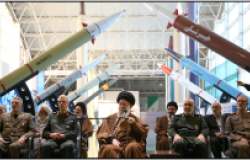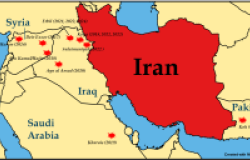Terrorism, Radicalization, and Prisons
Peter Neumann, Visiting Fellow, Center for Peace and Security Studies, Georgetown University, and Director, International Centre for the Study of Radicalization and Political Violence, King's College London
Overview
Speaker: Peter Neumann, Visiting Fellow, Center for Peace and Security Studies, Georgetown University; Director, International Centre for the Study of Radicalization and Political Violence, King's College London
This event was co-sponsored by the Woodrow Wilson Center's International Security Studies and Georgetown University's Center for Peace and Security Studies
Neumann's presentation was based on a study by the London-based International Centre for the Study of Radicalization and Political Violence on radicalization and deradicalization programs in 15 countries to prevent terrorist recruitment within prisons. That prisons become breeding grounds for radicalization should come as no surprise, Neumann stated. "Prisons are ‘places of vulnerability', which produce ‘identity seekers', ‘protection seekers' and ‘rebels' in greater numbers than other environments." The magnitude of the problem is not known since many of the reports recycle the same anecdotes, and those accounts are often flawed. For example, Richard Reid, the so-called "shoe bomber," was in prison, but his radicalization occurred at a London mosque.
"Conversion" and "radicalization" are frequently confused by commentators and even government agencies, thereby falsely implying that prisoners who take up purist strains of Islam—often described as Salafi—are all at risk of becoming terrorists. Not all Salafists are terrorists, Neumann observed. This confusion extends to the challenge of detecting radicalization early in the process at prisons. Guards are instructed to look for behavior, such as growing a beard or prayer, which is also consistent with religious conversion. The major elements in preventing radicalization are essentially the same as those necessary to run a good prison—avoid overcrowding, provide training to staff, and make available moderate religious services as an alternative to radical sects.
Neumann also addressed the positive aspect of this story—deradicalization programs that have been adopted to resocialize terrorists so that they can be placed back in to society. Programs that have had some success, such as in Saudi Arabia, have combined vocational training, material incentives, and the reestablishment of familial and tribal relationships. Former terrorists can serve as credible interlocutors to facilitate this process.
Success or failure of these programs can't be judged in isolation from the broader political environment in which they are conducted. "There are no silver bullets"—no off-the-self solution to this program. Each national program of deradicalization will be highly context-specific. At the same time, the prevention of prison radicalization is "not rocket science." The essential focus should be on running good prisons.
By Robert Litwak, Director, International Security Studies
Thank you for your interest in this event. Please send any feedback or questions to our Events staff.










